Pros and Cons of Extended Breastfeeding
This post may contain affiliate links that I may receive a commission from if you click & buy. In addition, the information on this site is NOT intended to be medical advice. See my full policy for more information.
If you’re a breastfeeding mother, you have probably wondered at some point, what are the pros and cons of extended breastfeeding? This article will help you make the best choice of feeding for you and your growing child.
What is Extended Breastfeeding (also known as Long Term Breastfeeding)
Extended breastfeeding can be a confusing topic. Simple because there is no specific time frame that it falls into.
This somewhat grey area is due to the fact that various medical organizations share different recommended breastfeeding timelines; for example:
- The Academy of American Pediatrics (AAP) recommends that babies be exclusively breastfed for the first 6 months, lasting for at least 1 year.
- The World Health Organization (WHO) recommends exclusive breastfeeding for the first 6 months, up to 2 years, and beyond.
And, in some cultures, they will breastfeed beyond 2 years without it being considered “extended breastfeeding” it’s just simply, their normal.
However, a general rule of thumb is that anything beyond one year is usually considered extended breastfeeding.
Pros and Cons of Extended Breastfeeding?
Making the decision to wean your baby from breast or continue on extended breastfeeding is not an easy one to make.
There are many pros and cons of long term breastfeeding mothers should consider and here they are below.
Pros of Long Term Breastfeeding
1) Can promote a strong bond between mother and child.
You might be wondering how breastfeeding and bonding go together in the first place.
Well, that “love hormone” we all know as oxytocin plays a big role. Whenever you’re close to your baby, enjoying skin to skin, and you guessed it — breastfeeding, oxytocin makes its presence. This allows mothers to feel less stress, less overwhelm, and simply enjoy the feeling of being snuggled up with their baby.
As the breastfeeding journey continues, oxytocin continues to show up as well. However, it is also important to mention that some mothers can and will experience the opposite effect, known as D-MER.
Plus, it’s sometimes just nice to be able to whip out the breast for your little one if they need help calming down. Though, I am a big supporter of teaching our children self-soothing techniques on their own to help them cope with big feelings later in life as well.
2) Health and immune system benefits.
Breastfeeding is commonly known to be the “best source” of initial food for babies. This isn’t because formula sucks or isn’t good (we love and support formula use, heck, we used formula for our own son for a bit), but there’s no denying the amazing benefits of breast milk either.
In particular, these health benefits are some of the big ones to consider:
- Breast milk is literally full of virus and bacteria-fighting antibodies to keep your little one’s system free of illness.
- Breastfeeding has been shown to promote positive long-term brain development in babies.
- Long-term breastfeeding can, “reduce the risk of breast cancer, ovarian cancer, diabetes, hypertension, obesity, and heart attack (for mothers)”, according to this study.
Lastly, one of my all-time favorite breastfeeding sites (KellyMom) shares that, “breastfeeding continues to be a valuable source of nutrition and disease protection for as long as breastfeeding continues.“
3) Easier to comfort their child.
If you’ve heard a mother say “it’s easy, I just whip out a boob”, that’s because those moms nurse their children for both nutritional reasons and for comfort.
For some, watching an older child breastfeed can make them seem uncomfortable, but it’s always important to remember that whatever choice a mother makes make shouldn’t matter to anyone else at the end of the day.
If your child has special needs where breastfeeding is one of the few things to bring him or her comfort, even more reason to continue if you wish.
If you and your child find it easier to breastfeed for comfort, for the time being, don’t feel rushed to give that up.
4) Maternal disease reduction.
We briefly discussed this one above, but breastfeeding (extended breastfeeding in particular) has been linked in multiple studies to promote maternal disease reduction.
I don’t know about you, but to me, that is a huge benefit to consider when it comes to breastfeeding after the age of 1.
5) It becomes less difficult.
If your breastfeeding journey started out a bit rocky, but you kept on, just think of extended breastfeeding as an even easier version.
At this rate your child can sit or stand on their own, they understand basic words related to breastfeeding and should be able to follow simple instructions too.
This means no need to stack breastfeeding pillows to prop up your tiny baby, hooray!
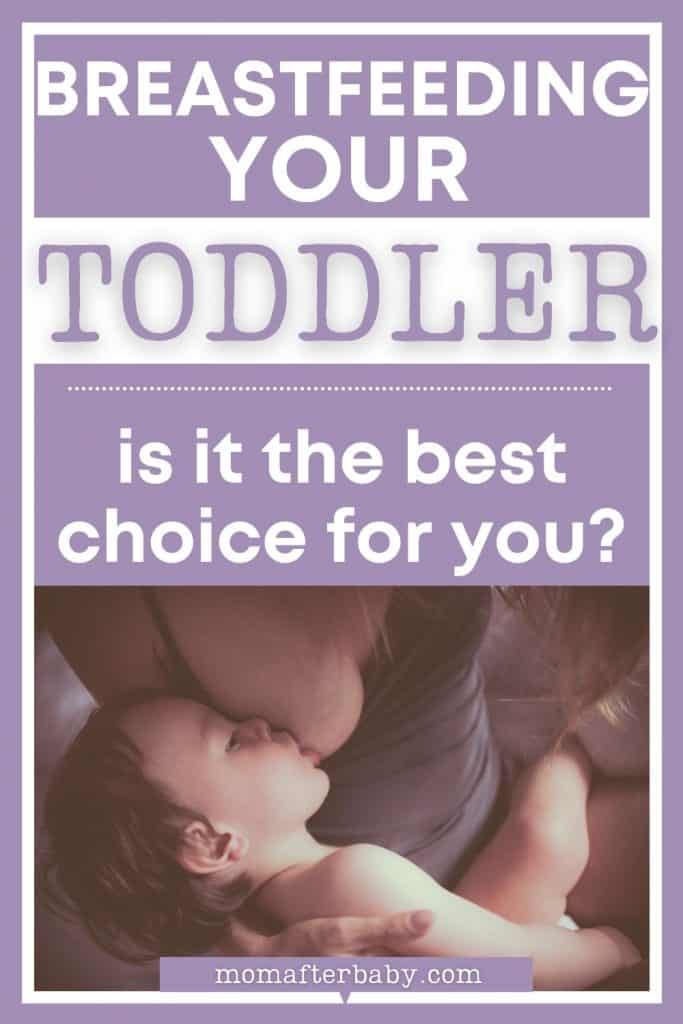
Disadvantages of Extended Breastfeeding
1) Judgment from others.
Breastfeeding a toddler seems like a weird thing to do to a lot of people. I’d love to tell you that you won’t face any judgement, but that just wouldn’t be true.
If breastfeeding your older child in public makes you nervous or feel strange, you have two options:
- Disregard those opinions because they really don’t matter and keep doing what works for your family.
- Find a discreet way to breastfeed your toddler with a little more privacy to avoid the stares and weird looks form strangers.
2) It can take a lot of work.
Breastfeeding in general is hard work (this includes pumping too). So by continuing to breastfeed through toddlerhood you can bet that although your child will nurse or drink milk with ease, your day-to-day being their main source of comfort can be draining.
3) The schedule can be difficult (and you might get less sleep).
Depending on your child’s breastfeeding schedule, it can mean you have to sacrifice a night out or two so that you can breastfeed your child.
For instance, if your child will not sleep without being nursed to bed, you will probably have a hard time scheduling any night time activities.
For many — the schedule is a small minuscule sacrifice to make, but for others, this could be extremely overwhelming.
4) You might get bit (ouch!).
Older babies mean more teeth. More teeth mean…you can run the risk of getting bit while nursing.
Often times it’s just a simple accident since toddlers and young children can usually follow simple directions.
Personally, I HATED getting bit when nursing. So if little teeth were terrifying to you, be forewarned about big teeth.
5) The risk of overattachment grows.
There are many different opinions on the over-attachment idea. Personally, I do believe it is possible.
I am not against long-term breastfeeding, however when it becomes the main source of coping and comfort for a young child AND the mother is also dependent on it for a comfort source — then that is where I believe the attachment can begin to have some issues.
Research and studies aren’t needed to understand that if a child becomes overly attached to any parent to a point that they struggle to do anything without them (for example daycare, or preschool), then that is a problem.
Extended Breastfeeding FAQ:
At what age is breastfeeding no longer beneficial?
There has not been any literature stating a specific time that breastfeeding isn’t beneficial.
The majority of medical and health professionals recommend exclusive breastfeeding for the first 6 months after birth up until 1-year-old (understanding baby will also begin solids somewhere around that 6-7 month mark).
Is it harmful to breastfeed for too long?
There is no literature or research showing that extended breastfeeding is harmful to a mother or her child.
If your child is old enough, I suggest trying to ask them if they want to keep breastfeeding. Try to understand their WHY which may help you figure out the best course to go.
If you find it’s more of an attachment situation for you (the mother), then I would consider speaking to a licensed therapist to help you work through those attachment feelings.
Does breast milk lose nutritional value after 6 months?
After 6 months of age, your baby will need additional sources of nutrients outside of breastfeeding such as iron, zinc, and vitamins B and D.
This is why it’s recommended to begin introducing solid foods around this age (as long as your baby is ready for solids).
You can check out this awesome extended breastfeeding fact sheet here for even more information.
You May Also Like:
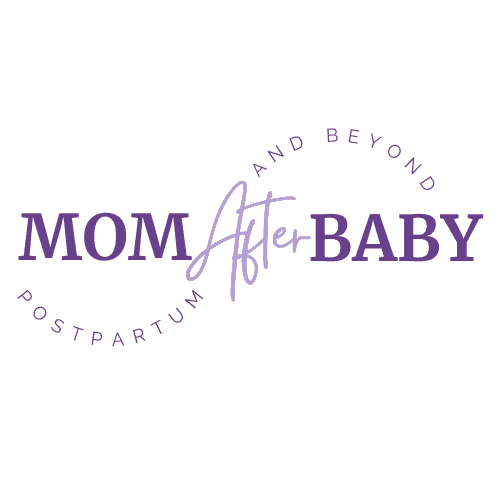

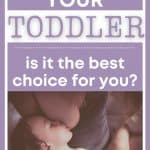

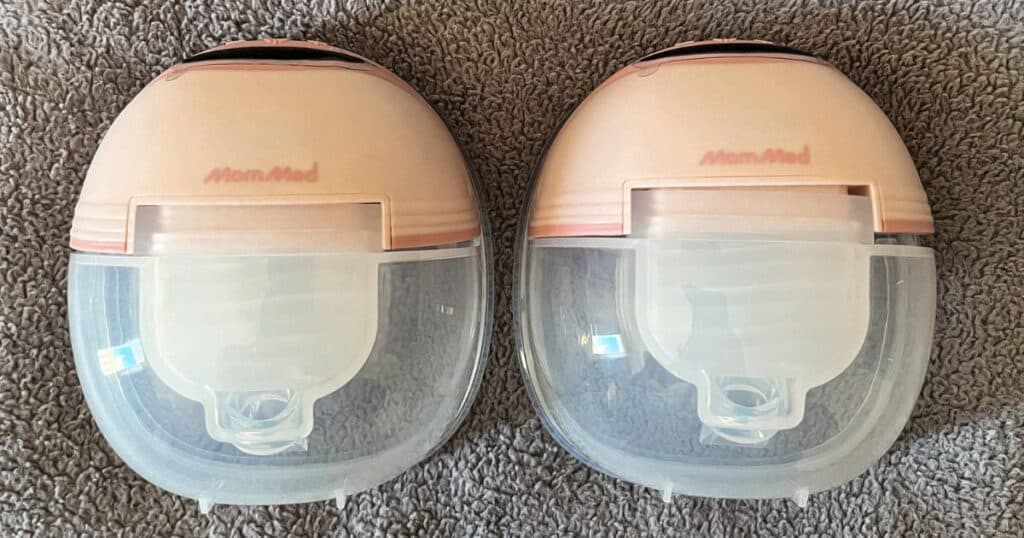
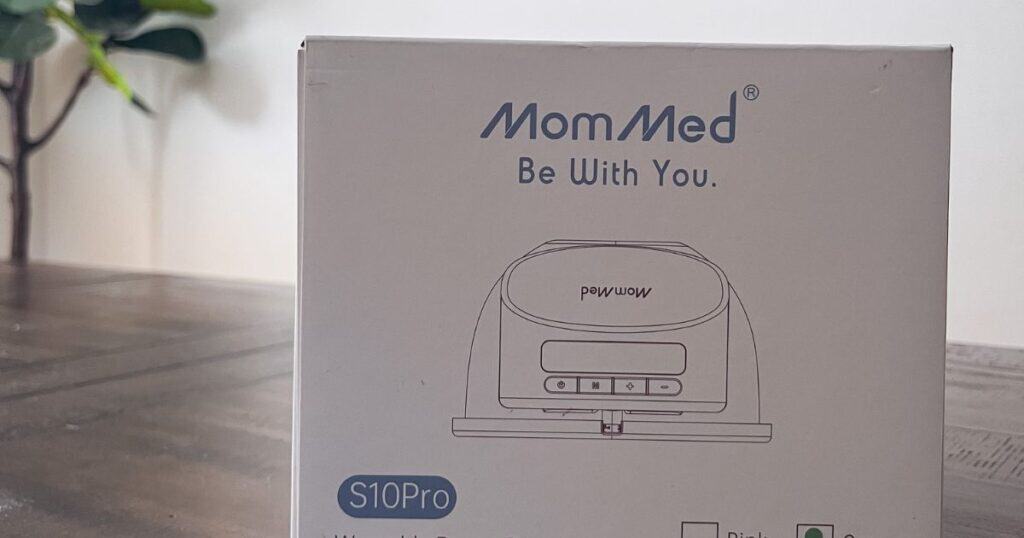

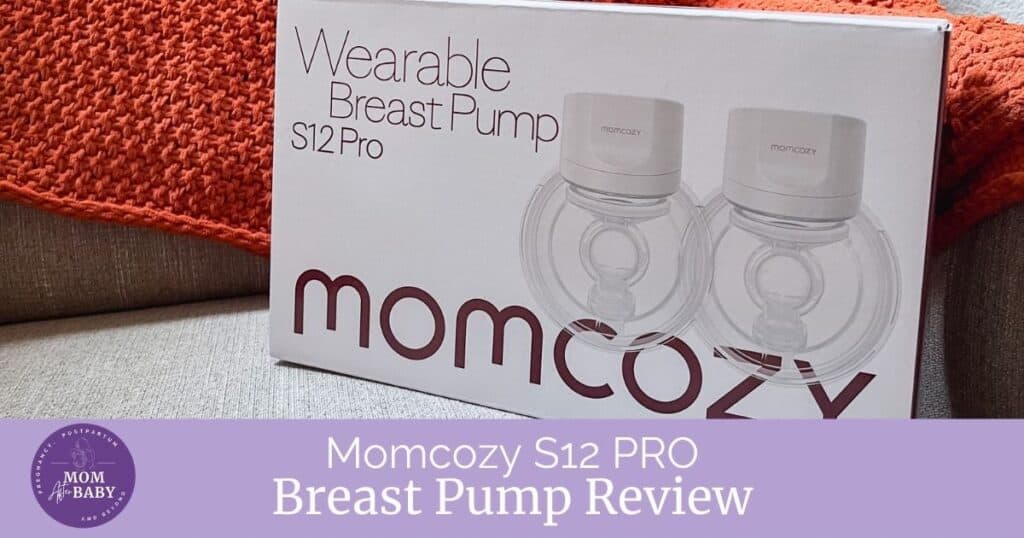
I have been breastfeeding for over 8 years.
Been pregnant 3 times
(3 pairs of female twins)
Sofia and Jojo
7 years 10 months
Anna and Elsa
4 years 4 months
Maddy and Olife
1 year 1 month
My husband and I had agreed that we would let everything take its course.
We rely on breastfeeding as a natural birth control method.
It has been very fruitful and effective for our family.
2nd and 3rd pregnancy of last grade
I’m pregnant and still haven’t had my postpartum period come back.
Today, our current twins are breastfed all the time, but I haven’t gotten my period back after giving birth.
And hopefully it will be a way to increase our baby birth gap for some time to come.